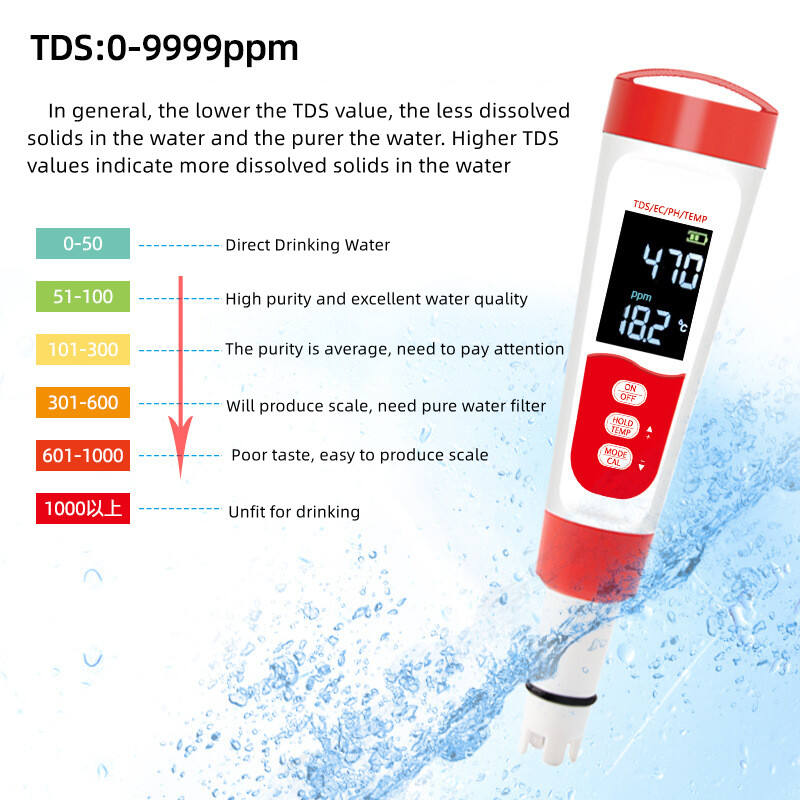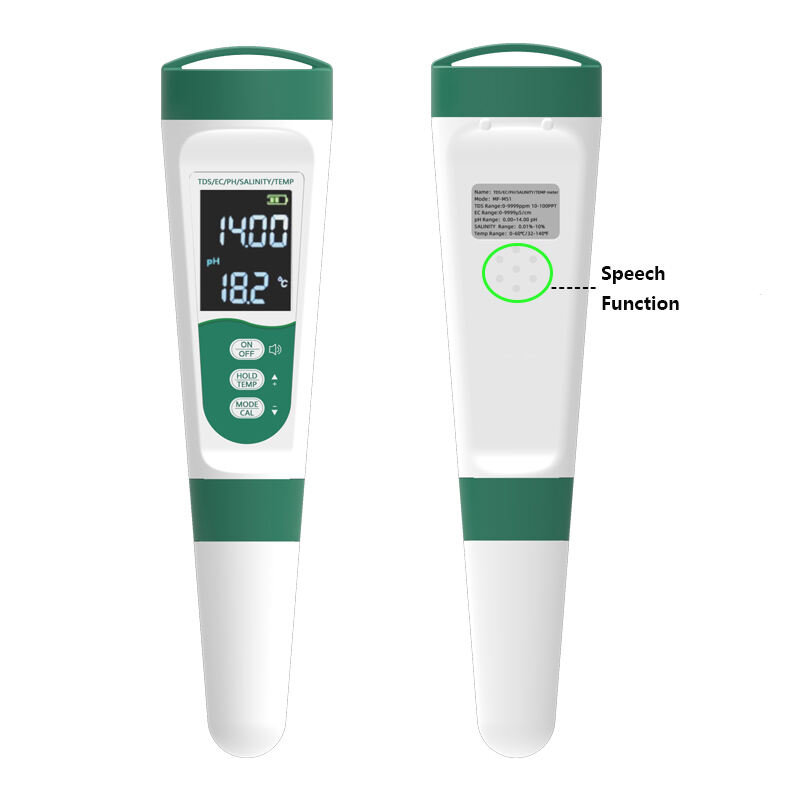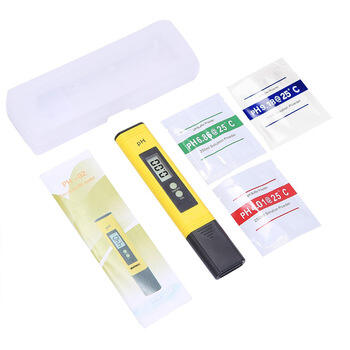salinity meter digital
A digital salinity meter is an advanced measurement instrument designed to accurately determine the salt concentration in various liquid solutions. This precision device utilizes sophisticated electrochemical principles to provide instant, reliable readings of salinity levels across multiple applications. The meter features a digital display that shows clear, easy-to-read measurements, typically in parts per thousand (ppt) or percentage. Modern digital salinity meters come equipped with automatic temperature compensation (ATC), ensuring accurate readings regardless of temperature fluctuations. The device includes a sensitive probe containing electrodes that measure electrical conductivity, which directly correlates to salinity levels. Many models offer data logging capabilities, allowing users to store and track measurements over time. The user-friendly interface typically includes calibration functions, measurement hold features, and multiple measurement ranges to accommodate different testing needs. These meters are designed for both laboratory and field use, with many models featuring waterproof construction and carrying cases for portability. The technology incorporates microprocessor-based analysis for enhanced accuracy and repeatability in measurements, making it an essential tool for aquaculture, marine research, food processing, and environmental monitoring applications.


